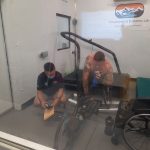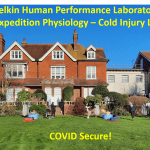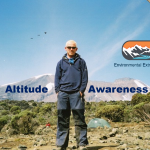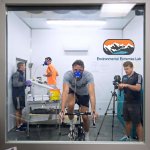As part of our HB710 – Applied Environmental Physiology – Module which sits within our MSc in Applied Sport Physiology or Applied Exercise Physiology we ran a debate yesterday which we have run for the last few years on which environmental extreme is worse – heat, cold or altitude? The idea came from two BBC articles that posed the question of which environment was more challenging. It was a fun activity at the start of the module to help contextualise some of the problems that environmental extremes can bring and allow some of the students who are newer to environmental extremes to become acquainted with the subject and considerations. There is an underlying objective, which is to make the students think more about how they use research evidence, especially in graphical or tabular form to strengthen their arguments and rationales as this will help them later in the module’s assessment, but also stand them in good stead beyond their degree.
Students were given a framework of five sections to pitch their evidence around:
- Effect of the environment on sports performance
- Proximity environment brings an individual to a physiological limit
- Severity of injuries and illnesses in the environment
- Mortality and morbidity incidence data form the environment
- How we might have evolved to cope with the environment
The students were lively and started to challenge the other groups on the evidence they were using which was good to see. It was also pleasing to see some had done their directed study of watching the GL Brown Lecture that Professor Mike Tipton MBE delivered in 2015 on ‘Extreme Threats – Environmental Extremes: Origins, Consequences & Amelioration’. The ‘altitude is worse’ group even cited material from the presentation in their defence.
As to the winner, Dr Neil Maxwell (judge) sat on the fence a little by saying it depended on the situation, criteria used and the weighting of this criteria and he said “it was not possible to be definitive. Much like the ’cause of fatigue’, it depends on so many factors”. However, it made for an interesting MSc session that the students engaged really well with.

































Leave a Reply